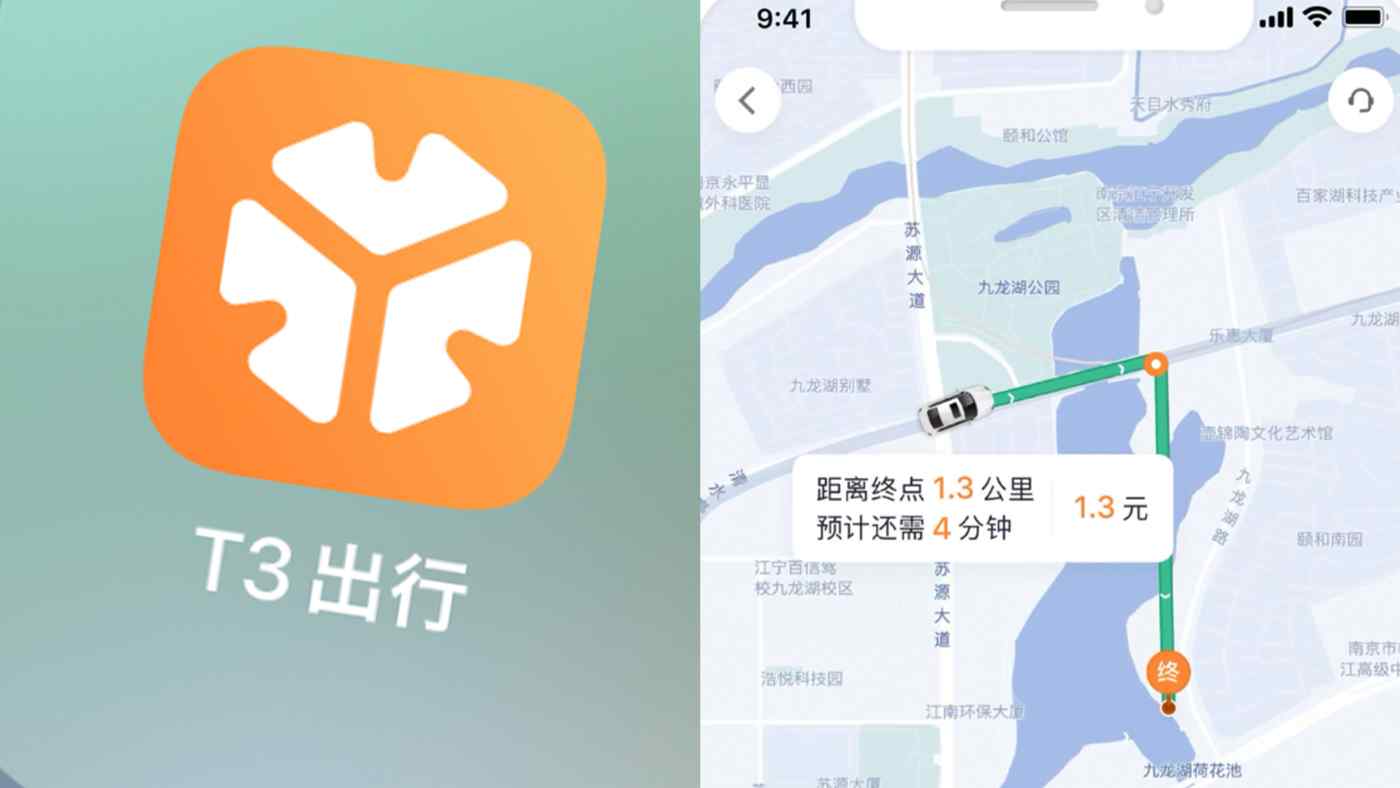27 Oct NIKKEI Asia: China ride-hailer T3 raises $1.2bn as rivals pounce on Didi’s woes – 2-year-old startup joins race to snag market share from embattled company
Media source: NIKKEI Asia

T3 Chuxing’s $1.2 billion funding round points to greater competition between government-backed and private players in the ride-hailing business, observers say. (Screetshot from T3 app)
TOKYO/HONG KONG — Chinese ride-hailing company T3 Chuxing says it has raised more than $1 billion from a group of investors led by state-backed conglomerate Citic Group, as its bigger rival — SoftBank Group-backed Didi Global — continues to feel the sting of a regulatory crackdown.
Founded in 2019, Nanjing-based T3 announced the 7.7 billion yuan ($1.2 billion) investment late on Tuesday. The company says it operates in 41 cities and has more than 54 million registered users. It said daily orders for rides exceeded 2 million for the first time on Sept. 30, more than double its daily peak in the second quarter.
“T3 Chuxing will increase its investment in user service improvement, product innovation, technology research and development, and autonomous driving,” the company said in a news release. It also signed a strategic cooperation agreement with CITIC Investment Holdings to “jointly build a new ecosystem of intelligent travel.”
The Series A round — generally considered a startup’s first major external fundraising — is one of the biggest of its kind in China this year. T3 said it is the largest funding round for an online car company in China since 2018.
The move is a signal of how investors are betting that new players can grab market share from Didi, which has dominated the ride-hailing market in China but has come under intense regulatory scrutiny since this summer. Just days after its U.S. initial public offering at the end of June, China’s cyberspace regulator said Didi violated rules on the handling of personal information and ordered its app to be removed from app stores. Its New York-listed shares have fallen about 40% since the IPO.
T3’s growth over the past two years is “based on its business philosophy of safety compliance and customer orientation,” among other factors, a Citic official was quoted as saying in the news release.
Caocao Mobility, the ride-hailing arm of automaker Zhejiang Geely Holding, in September said it raised 3.8 billion yuan in a funding round.
In its IPO prospectus, Didi said it had 377 million annual active users for the 12 months ended March 2021. Didi still has a market capitalization of about $40 billion.
“T3 Chuxing attaches great importance to data security, provides safe and compliant travel services and has built the largest smart online travel ecosystem with new-energy vehicles as the mainstay within the country … [which is] in line with Citic’s strategy to serve the technology innovation,” said Citic Capital Securities General Manager Li Geping.
T3 Chuxing was founded by Changan Automobile, FAW Group, Dongfeng Motor Corp. — three Chinese state-owned conglomerates — together with Tencent, Alibaba and Suning in 2019. Besides CITIC, investors in the latest round include Beijing-based Yingtong Technology, Ly.com, Redview Capital and Virtue Capital, which was set up last year by a number of automotive industry veterans.
Cui Dongshu, secretary general of the China Passenger Car Association, said the sharp growth of platforms like T3 could lead to a “rapid decline” in Didi’s dominance, as many Chinese users have already started to use the Alibaba-backed Gaode and Baidu for taxi rides.
Some industry observers say the massive funding round signals something more than a potential shake-up in the ride-hailing sector.
“Investor attraction to T3 is fresh evidence of the larger trend: State enterprises are on the ascendancy, while private companies like Didi are back on their heels, awkwardly out of favor with the people in charge in Beijing,” said Michael Dunne, chief executive of China-focused automotive advisory company ZoZo Go.
Bill Russo, founder and CEO of advisory company Automobility, similarly pointed to how competition in the sector is increasingly taking on a state-versus-private enterprise aspect. “Didi remains the dominant player in spite of the recent challenges from the China government, which was partly motivated by the fact that ride-hailing companies are not government-controlled entities and compete with public transportation,” Russo said. “T3 Chuxing, as a collaboration among automotive SOE partners, provides a government-backed alternative to Didi.”
T3 and Citic did not immediately respond to Nikkei Asia’s request for comment.



Sorry, the comment form is closed at this time.